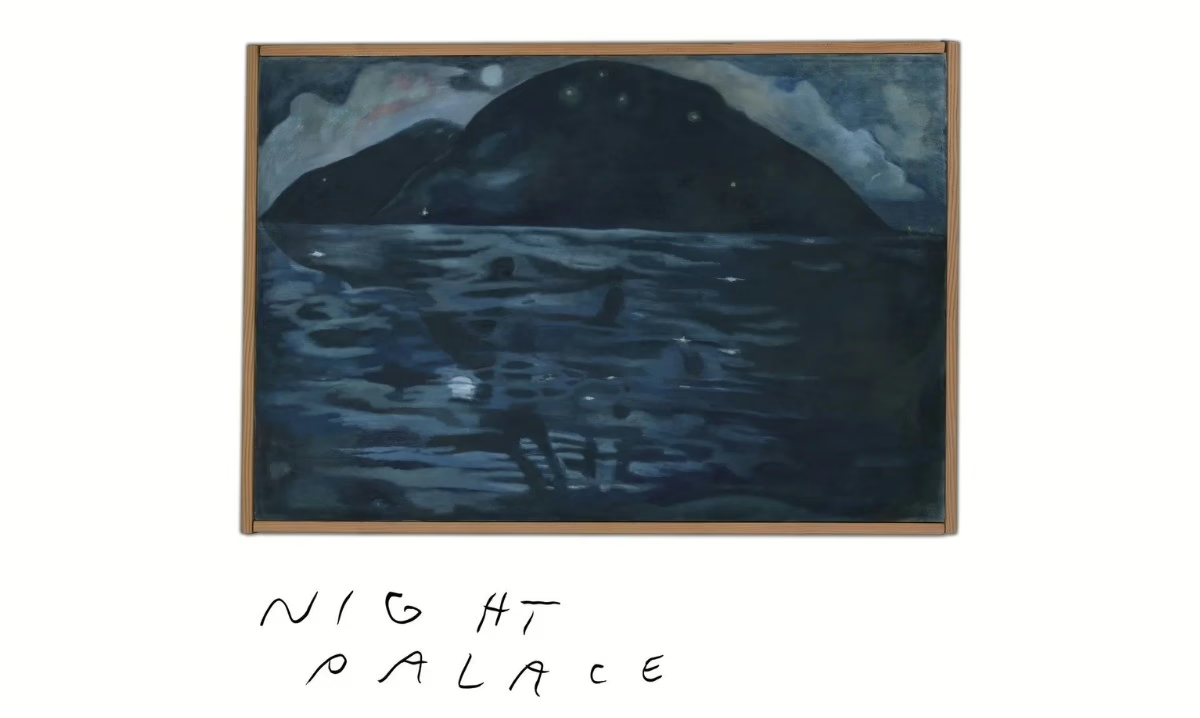Change the record: Katy Perry – 143
Usually, I like to start these reviews with a snarky quip or something funny, but today, I want to start with a simple question: Why are you here? What do you think I’m going to say? You know this album sucks, we all know this album sucks—that’s the only thing anyone’s talked about since its release. It’s not often I get to investigate an album whose reception is this radioactive and awful, but frankly, talking about why the album is bad is the least interesting angle to look at here. Instead, I want to look at exactly how we ended up here.
I hope I don’t have to introduce Katy Perry to you. She’s one of the most successful pop stars of all time, with numerous hit singles and the most No.1s from a single album ever. For a while, her reputation was that of a queen of vapid and very stupid pop music, made for only the lowest common denominator. Of course, this was a worldview of curmudgeonly old heads who hated pop music. In the years following the release of Teenage Dream and California Gurls, a new movement in the music critic sphere—known as “poptimism”— emerged. Poptimism seeks to give mainstream pop music the respect it deserves amongst music critics. It’s why you’ll see Carly Rae Jepsen and Madonna placed in lists next to Radiohead and The Smiths. With the rise of “poptimism”, Katy Perry was given a sort of retribution among the music journalist spheres for a bit.
Things would then completely derail with the release of her album Witness.
Witness was Katy Perry’s push towards what she called “purposeful pop,” a movement that she made up and quickly turned out to be pretty misleading, as most of the songs on the album lacked any purpose at all. It was roundly rejected, both by the average music listening masses, as there were no real pop jams to get excited about, and by the snobbier music corners, as the album was just pretty bad generally and was reaching beyond its grasp for something it had no chance of reaching. This tragically meant this was the album that wanted to say something about society but only ended up saying things about Katy Perry herself.
Her next release was 2020’s Smile, an album that seemingly tried to course-correct all that Witness had destroyed but ended up a much blander and safer affair that couldn’t get her back all of the goodwill and pop success she had quickly lost. Four years since its release, it’s rarely talked about, now just remaining alongside that new Justin Timberlake album as a forgettable follow-up to a massive disaster.
This finally brings us to 143, Katy Perry’s newest album. As I said in the beginning, the response has been both immediate and absolutely brutal. From the release of the very first single—the overblown and completely obnoxious Woman’s World— it seemed like this album was just fated to burn in infamy. It didn’t help when it was revealed the album would almost be entirely produced by alleged rapist, Dr. Luke. This was especially surprising and damning considering Perry’s earlier push towards feminist ideas and her effort to distance herself from Luke during the Witness era. It made it feel like this was a move of sheer desperation to try and reach the heights she once had by abandoning any and all morals and trying to squeeze a hit out of his old bones, proving how little purpose her pop actually had. Unfortunately for her, stan culture has gotten a lot more snippy about who you work with, and the backlash to this was quickly taking over the discourse around her, alongside the fact the song just plain sucked.
With all of this talk about her controversies and history leading up to this album’s release, I’ve barely talked about the music, and that’s because what am I even supposed to say? It’s all over-processed, poorly made, ugly, and shitty-bottom-of-the-barrel pop music that wouldn’t have sounded good 20 years ago, let alone during one of the best years for music in a while. Let’s take the song Crush, which is a pretty accurate title because the mix feels pretty crushed. The beat sounds like Garageband loops with the worst plastic-sounding production and a hook that sounds made up on the spot. The song Truth is much the same, with production that feels fake and lifeless and Perry sounding more phoned-in than a prison lifeline. Unfortunately, this is basically as much as I can say about these songs. Other than 21 Savage and JID trying their best to bring any kind of life to this; however, this music is so lifeless it’s actively decomposing as I’m listening to it.
So yes, this new Katy Perry album is bad, but sadly, not even really bad in a way that’s fun or interesting; it just feels depressing to listen to, like seeing your sober friend fall off the wagon.
As I’m reading this obituary, I realize I don’t even know why anyone would have expectations for Katy Perry after everything. The old hits were great, but it’s becoming clearer by the year that those hits were lightning in a bottle— something she may never capture again. Well, at least as far as I know, I’d love it if she could prove me wrong, but that seems beyond unlikely, as all I’m left with is the scraps of a pop singer who used to be so much more, spread thinly over a desperate and poorly made album with no real redeeming features. What a disgrace.

Hello there stranger, this is Kate Megathlin, writer for weekly music reviews for the Seattle Collegian, here to assert how much more important her opinions are than yours. She is a Seattle Central student with a major love of music and music culture, and every week she’ll try to deliver reviews of new albums coming out, if you want to recommend albums for her to review, email her at Kate.Megathlin@seattlecollegian.com.







